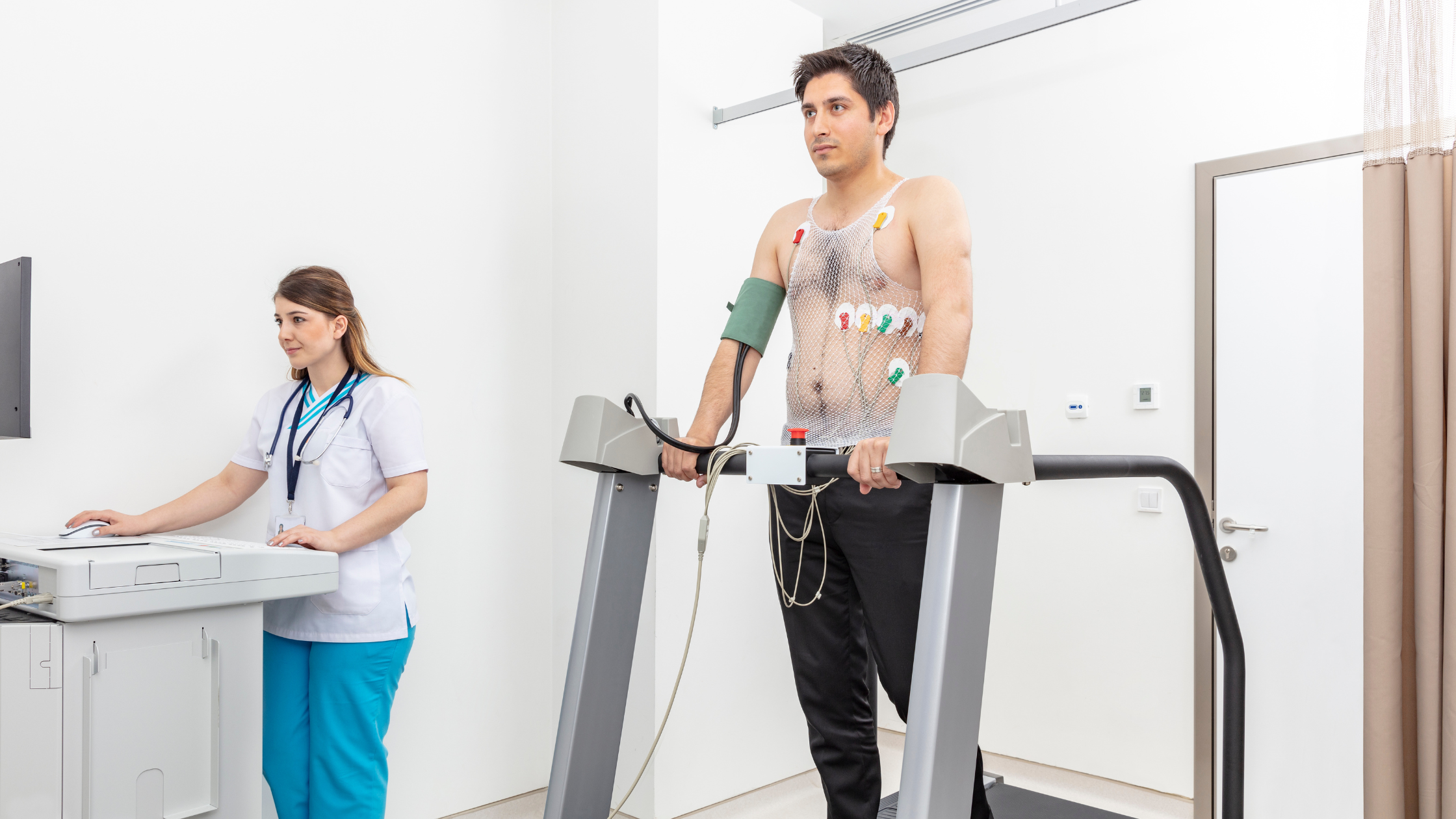
07 Dec Basic guide to Cardiac Stress Test
It can sometimes be difficult to determine if the patient has coronary heart disease when at rest. This is why a cardiac stress test is performed. This is a medical test that is used to evaluate the coronary artery flow when the heart’s load is increased. This type of test it typically done on a treadmill and the treadmill’s gradient and speed is adjusted until the patient achieves their target heart rate, which is usually 85 percent of their maximum heart rate. The main reason for having a stress test is that many heart tests (such as listening through a stethoscope, taking heart beat and blood pressure, and so on) cannot detect all heart problems – because they’re given while the patient is at rest. Many problems of the heart and circulatory system only reveal themselves when under stress.
However, sometimes the patient is unable to walk on a treadmill or to get their heart rate up to the required level. Perhaps they have back problems, poor gait and posture, or dizziness that precludes them from walking on the treadmill. In this case a chemical test may be ordered. In this type of test medication is also be used. Medication such as dipyridamole or adenosine may be given intravenously to stimulate the heart in a similar way as the exercise would. The patient is then monitored on an electrocardiogram (ECG) and blood pressure machine.
The purpose of a cardiac Stress test
A normal stress test starts by having the patient hooked up to an electrocardiogram machine. The patient may ride a bike or walk on a treadmill. The symptoms monitored for are – changes in blood pressure, breathing rate, and heartbeat rate. The technician will also be on the lookout for signs of angina, or chest pain, as well as irregular heart beats. As the test progresses, the incline of the machine will be slowly raised to force the patient to work a little harder. The stress test will normally last between 15 and 20 minutes – enough time to collect all the pertinent data that the doctor may be interested in.
If you have symptoms of coronary artery disease or factors that put you into a significantly high risk category then a test may be ordered. If you have unexplained shortness of breath or fatigue or high blood pressure then a test could also be ordered. Cardiac test is able to diagnose two thirds of patients with having coronary artery disease. This 67 percent reliability can be increased up with nuclear or isotope testing which takes images of the heart at rest and following exercise.

No Comments